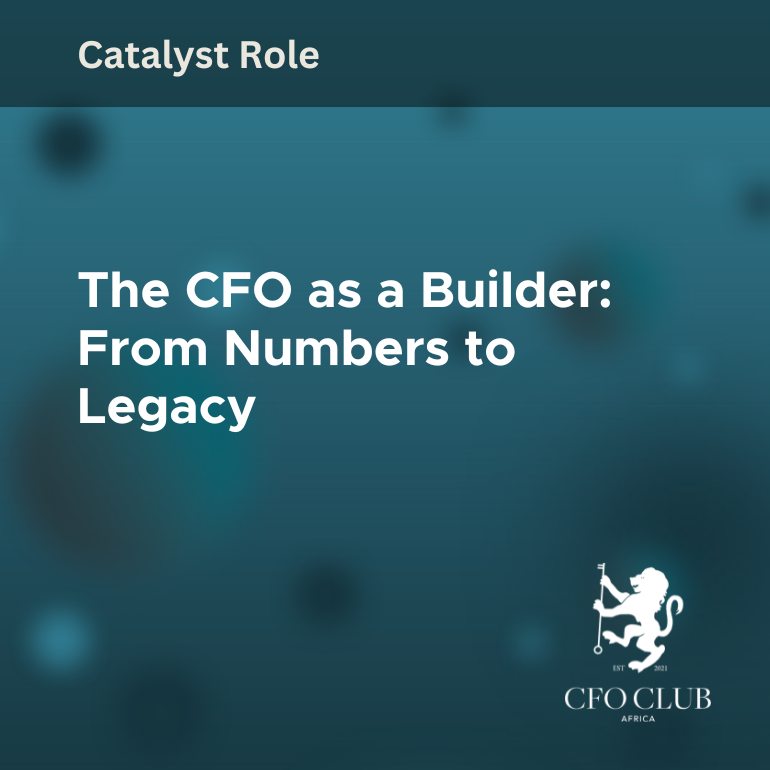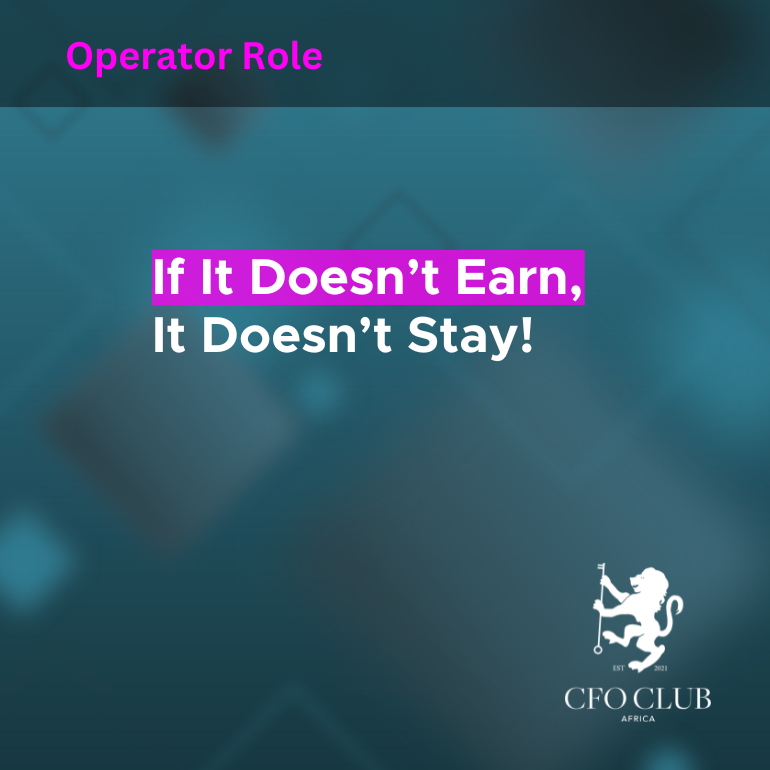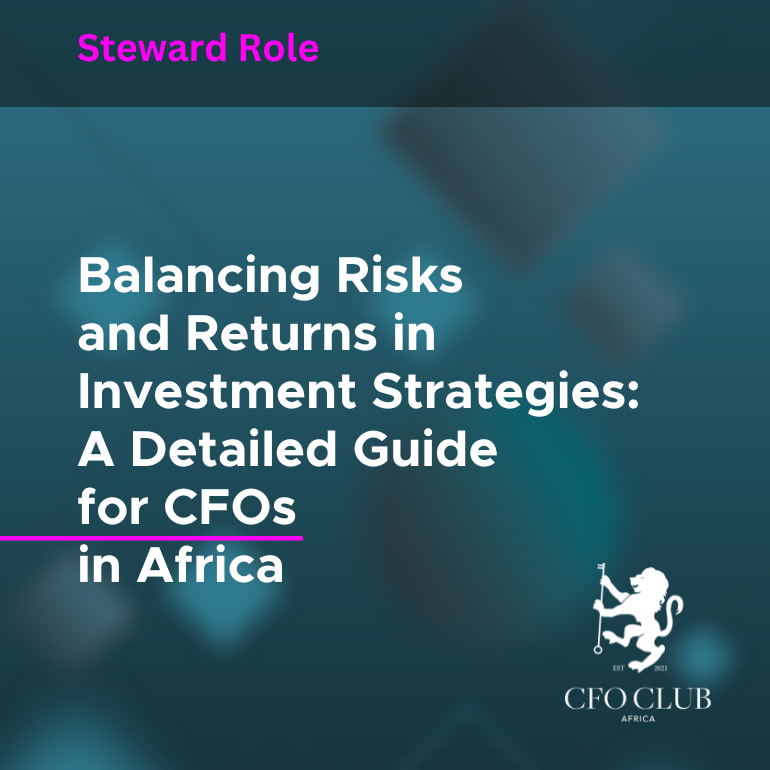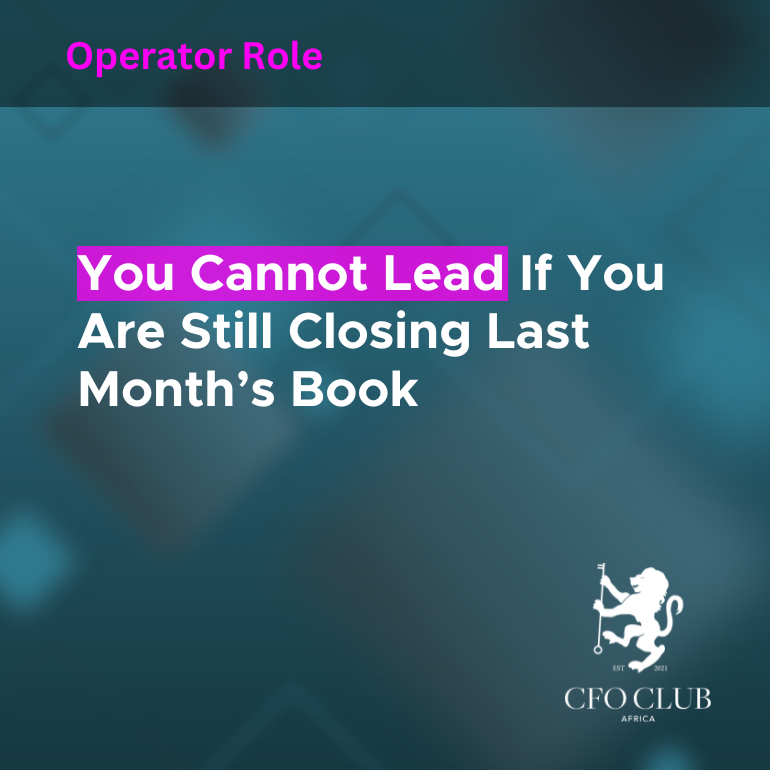The CFO as a Builder: From Numbers to Legacy
When a company rises, it is rarely because of numbers alone. It is because someone dared to connect the numbers to people, culture, and possibility. The true measure of finance leadership is not in quarterly reports, but in what is built between them: the systems, the teams, and the momentum that keep an organisation moving forward long after the ink has dried.
More Than a Scorekeeper
Traditionally, finance was seen as the department of discipline. The CFO ensured controls were strong, reporting was reliable, and costs were contained. While these responsibilities remain, the expectation today is that the CFO will do more than keep score. They must help set the rules of the game and coach the players.
Being a builder means shifting from reactive reporting to proactive value creation. It is about using financial insights to shape strategy, influence behaviour, and inspire teams. The CFO who sees themselves as a builder asks not only “What happened?” but also “What can we create next?”
Building Culture and Confidence
One of the most overlooked powers of the CFO is their ability to build culture. Numbers are not neutral; they shape how people feel about the organisation. Targets can motivate or demoralise. Reporting can encourage ownership or create fear. Incentives can spark innovation or drive short-termism.
A builder-CFO pays attention to these levers and uses them wisely. Instead of presenting financial results as a list of variances, they frame the numbers in a story that makes sense to people across the business. They encourage a culture of accountability without blame. They highlight achievements alongside risks, creating confidence that progress is possible.
By building this type of culture, the CFO makes finance a trusted partner rather than a feared watchdog.
From Compliance to Catalyst
The modern CFO cannot ignore governance, regulation, and compliance, but being a builder means going further. Compliance alone keeps a business safe; catalysing transformation takes it forward.
For example, financial data can be analysed not only to satisfy auditors but also to spot patterns in customer behaviour. Budgeting can be used not only to allocate costs but to unlock investment in future growth. Risk assessments can protect the organisation, but they can also highlight new opportunities.
This is the essence of the builder mindset: using the traditional tools of finance as platforms for innovation and growth.
Building Teams That Last
Legacy is not measured in the spreadsheets a CFO leaves behind but in the people they have developed. A builder-CFO invests in their finance team, not just for immediate delivery but for long-term capability.
This means creating opportunities for younger accountants to stretch beyond their comfort zones, introducing new technologies that free the team from repetitive work, and encouraging continuous learning. It also means cultivating resilience. Finance is often under pressure, with deadlines, audits, and executive scrutiny. A CFO who models calm under stress and prioritises well-being builds teams that can sustain performance over time.
When teams feel empowered to solve problems and contribute ideas, finance evolves from a back-office function into a centre of innovation.
Driving Change Through Storytelling
One of the most underestimated skills of a builder-CFO is storytelling. Financial results alone seldom inspire. What inspires is connecting those results to the bigger picture.
For example, rather than telling a team that margins improved by two percent, a CFO could explain that this improvement makes room for investment in new technology or allows for hiring more staff. Instead of focusing only on cost savings, they could show how those savings fund future growth or protect jobs in difficult times.
Numbers tell what happened, but stories explain why it matters. The builder-CFO knows how to craft stories that move people from compliance to commitment.
Legacy Through Agility
Legacy does not mean clinging to tradition. It means building something that lasts because it can adapt. For a CFO, this involves embedding agility in financial processes. Forecasts must be rolling, not rigid. Budgets must flex to changing conditions. Systems must allow for quick analysis and faster decision-making.
In the current South African environment, where businesses face regulatory uncertainty, global market shifts, and constant technological disruption, agility is not optional. A CFO who builds systems and processes that can pivot quickly creates resilience for the organisation. That is a legacy of true value.
Leadership Beyond the Ledger
At its core, the idea of the CFO as a builder is about leadership. Numbers will always matter, but it is the way they are used that defines impact. Builders lead by showing that finance is not a barrier but a bridge. They create clarity where there is confusion, stability where there is volatility, and opportunity where others see obstacles.
This requires courage. Building means taking responsibility for decisions, pushing for innovation, and sometimes standing firm when others want to compromise long-term sustainability for short-term results. It requires resilience, because transformation is rarely a smooth journey. And it requires humility, because legacy is not about personal recognition but about leaving something meaningful behind for the organisation and its people.
The Builder’s Legacy
The measure of a builder-CFO is not only the shareholder return they deliver but the organisation they help shape. Did they leave behind a finance function that is stronger, more innovative, and more connected to the business? Did they develop people who are ready to take on leadership roles? Did they create a culture where financial insights drive strategy rather than limit it?
If the answer is yes, then they have built more than numbers. They have built a legacy.
Conclusion
The CFO’s role is demanding. Balancing compliance with creativity, discipline with agility, and numbers with people is no small task. But it is precisely this balance that defines the builder.
South Africa needs CFOs who are more than accountants, more than scorekeepers, more than guardians of compliance. It needs CFOs who are builders. Builders of culture, builders of resilience, builders of legacy. Because in the end, anyone can produce a set of financial statements. It takes a builder to produce a future.





